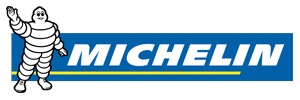Climate Control Systems
A vehicle's engine is cooled by a cooling fan, water pump, thermostat, radiator, heater core, and heater valve. These parts work together to dissipate and remove heat. The cooling system in your vehicle is responsible for reducing the temperature of the engine and preventing it from overheating. A build-up of excess heat can occur in various places within your vehicle's engine. The thermostat opens and releases antifreeze from the engine to the radiator when the engine reaches maximum operating temperatures, which initiates the circulatory flow to absorb excess heat. Other engine fluids are kept from boiling or freezing by the antifreeze. The antifreeze, after flowing through the engine, cycles back to the radiator where the excess heat escapes through the radiator's walls. The cooling fan cools the antifreeze so that it can be re-released into the engine to dissipate additional heat.
BenefitsAntifreeze breaks down over time and loses its efficiency. Old antifreeze can lead to corrosion if it is not drained and replaced. Our staff will drain the antifreeze from the radiator, flush the cooling system, and fill the radiator with new antifreeze during a cooling system flush and fill. The cooling fan for the cooling system circulates air through the radiator and passes excess heat out of the engine. If your vehicle's engine overheats, it may be because the cooling fan has malfunctioned. Our experts will check the cooling fan for damage and the fan belt for cracks during an inspection of the cooling system service. A leak or broken radiator hose can lead to major engine failure because the radiator is responsible for cooling the antifreeze as it circulates throughout the cooling system. One way we can check for potential leaks or radiator damage is with a radiator pressure test. If you don't maintain your cooling system and radiator, you'll probably have to replace the radiator and do major engine or radiator repairs later.
|






